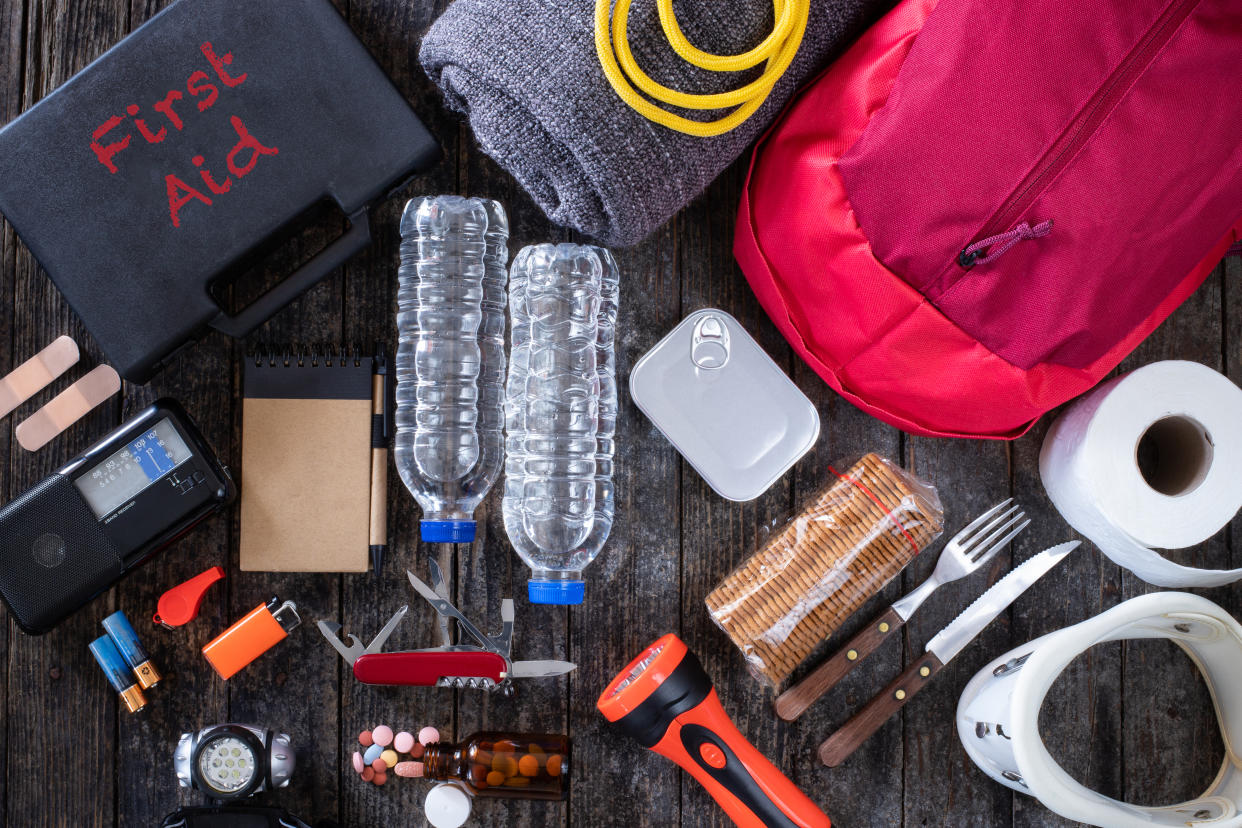How to prepare an emergency kit for a doomsday

2020 has been the most trying year of our millennial lives; from a worldwide pandemic to floods, and bush fires, and cyclones, and volcanic eruptions, and earthquakes, and if that wasn’t enough what what we’ve seen and experienced in the last five to six months, we’ve had locust swarms and oil spills and blasts and plane crashes.
All of this has resulted in loss of thousands and thousands of lives. A lot of people have relocated and migrated away from the cities in search for a safer place to call home. In case of emergencies, it would be wise to keep a kit ready of all the essentials you and your family would require in case the worst case scenario arises.
We’ve put together a list of things that can packed and carried in this ‘doomsday kit’. Here’s what you’ll need:
Water: You’ll probably need to carry a few litres of water with you. I would be wise to carry a reusable big bottle of drinking water that can accommodate upto five litres, in the worst case scenario if there is no water available anywhere. This can be in the form of water pouches or bottles or jugs, whatever is of more convenience.
Swiss knife: This multi-functional tool is the best thing ever and consist of everything from screwdriver to a can opener to a knife to scissors to even a toothpick. They are small and light and easy to carry in your pockets.
Chargers: In order to keep your electronics alive, get a charger that can used for numerous different devices. A solar battery charger can be of a great use during such times.
Portable light: Most of our devices have mild light, but it would be wise to keep a torch and a pack of batteries in the kit.
Mask: Masks are a necessity now so make sure you keep a handful of them in the kit. A bunch of cloth masks can be used and reused on a regular basis instead of using disposable ones.
First aid kit: This includes everything from bandaids to sprain sprays, your medicines and even vitamins. Make sure you add medicines and gels for burns and bruises.
Snacks: You have to be smart in this department because you have to carry things that will last for a long time. So think on the lines of protein bars, granola, nuts and dry fruits; these are lightweight and can be easily stuffed into a bag. If you are relocating to another place then carrying along some grains and rice would not be a bad idea.
Reusable cups and plates: Keep a pair of cup and plate in you kit for you food and drinks. Make sure that these are reusable and not disposable. No need to carry different sizes, just a basic lightweight cup and plate would be easy to carry around with you.
Hygiene items: These include tissues, soap, handkerchiefs, napkins, deodorant, toothbrush, toothpaste and a comb. Think of it as the necessities that you’ll need to keep yourself as clean and groomed as you could.
Matchbox/lighter: Incase you need to make a campfire or a bonfire to cook or to keep yourself warm, a matchbox or a lighter would be of great importance, and it barely requires any space.
Whistle: In case you lose cell service or battery power, a whistle can help alert emergency rescue crews in a worst case situation.
Waterproof backpack: You backpack should be able to fit in all of this. Make sure that it is waterproof or has some outer cover to protect from the rains. Make sure that it is sturdy and made of good quality in order for it to be able to carry the weight of all these items. Thick shoulder and padded straps will make it less painful for you back and a strap around your waist will help you secur it and maintain a better posture as well.
Clothing items: Carry and wear clothes that are washable and are able to dry quickly. Carry a big scarf that can double up as a throw, a blanket and even a wrap around your face and body to keep yourself warm. Carry a waterproof jacket incase the rain gods strike at you. Make sure that it has lots of pockets for you to carry as much stuff with you as possible. Wear pants and not shorts to protect your legs from bugs and bites.
Decent walking shoes: Last, but not the least, a pair of decent walking shoes will help you in the long run and your feet will thank you for it. Make sure that they are versatile enough to be worn for different seasons, be it if you’re walking in the rains or on a rocky terrain. And don’t forget your socks.


